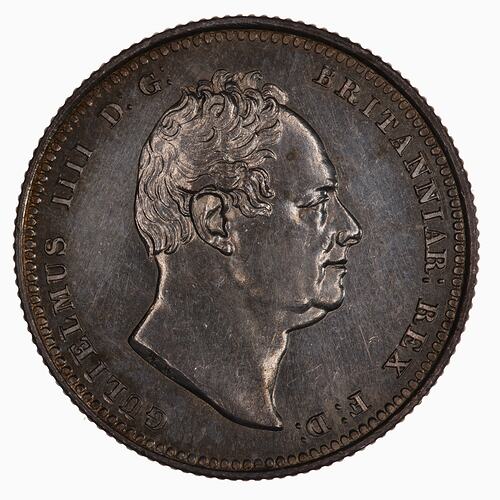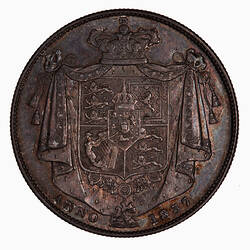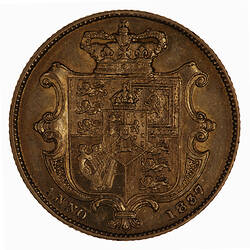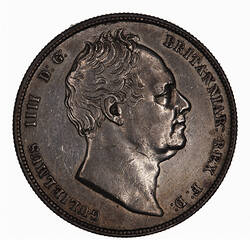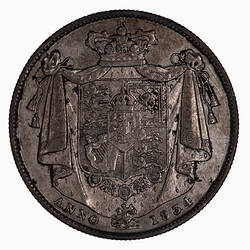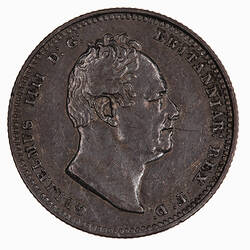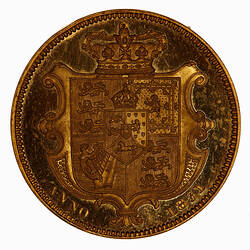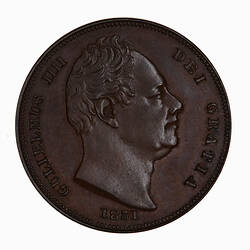William IV was born in Buckingham Palace on 21 August 1765, the third son of George III and Sophia. At the age of 13, William became a midshipman and began a career in the Royal Navy. In 1789, he was made duke of Clarence. He retired from the Navy in 1790.
William did not expect to become monarch, and cohabited with actress Dorothea Jordan from 1791 until 1811. She bore him ten children. Upon the death of Princess Charlotte, daughter and heir of George IV, William was elevated to the throne of Britain. He quickly abandoned Mrs. Jordan and married Adelaide of Saxe-Coburg and Meinengein, who bore him two daughters (both of which died in early childhood). In spite of his earlier family William never generated the embarrassment and scandal of his Hanoverian predecessors.
William was welcomed with open arms by the British public, who had grown weary of the excesses of his brother George IV. He was an unassuming character, leading an exemplary private life and showing disdain for pomp and ceremony. Court life during his reign became somewhat lackluster, however, adding to the generally low opinion that had formed concerning the monarchy.
Parliamentary reform was prominent during his reign. The county franchise had not been updated since its inception during the reign of Henry VI, in 1430. The industrial and agricultural revolutions, increases in population and trade, and migration from the country to the city left England with a dilapidated, ineffective system of representation that only benefited the aristocracy. A reform bill was passed only because William threatened to create enough new peerages to insure passage of the bill. The Reform Act of 1832 extended the voting franchise to middle class land owners and became the basis for further acts which eventually enfranchised all adult subjects.
The fight for democracy was sweeping Europe, with dire consequences for royalty. William's unremarkable character was instrumental in England passing through this era unscathed. He was the only European monarch of the age to survive the advent of democracy.
Upon his death from pneumonia on 20 June 1837, the Spectator issued the following eulogy: 'His late Majesty, though at times a jovial and, for a king, an honest man, was a weak, ignorant, commonplace sort of person.' He left no legitimate children, and his death separated the joint rule of England and Hanover: his niece Victoria ascended the throne of England but was barred by Salic law from ruling in Hanover.
References:
Britannia website http://www.britannia.com/history/monarchs/mon57.html
Royal Family website http://www.royal.gov.uk/output/Page116.asp
More Information
-
Keywords
-
Localities
-
Authors
-
Article types
